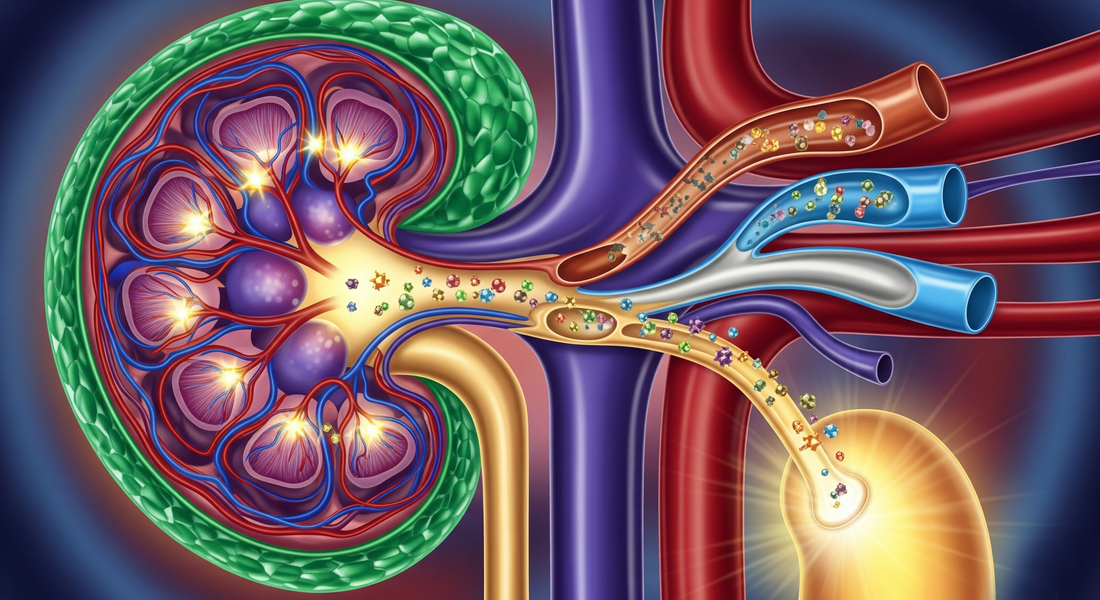
How Diabetes Quietly Accelerates Heart and Renal Failure—And What You Can Do About It
Diabetes is more than high blood sugar—it’s a systemic condition affecting multiple organs. Persistently elevated glucose levels damage blood vessels, increasing the risk of cardiovascular disease and diabetic nephropathy.
The Silent Impact on Heart and Kidneys
High blood sugar injures endothelial cells, which line blood vessels, causing arterial stiffness and plaque buildup. This vascular damage increases cardiac workload and contributes to heart failure. Simultaneously, hyperglycemia harms the delicate filtration structures in the kidneys, accelerating renal decline.
Signs and Symptoms
- Fatigue and weakness
- Swelling in the extremities
- Frequent urination and increased thirst
- Shortness of breath or exercise intolerance
Preventive Strategies
- Glycemic control: Monitor blood sugar, follow prescribed medication, and maintain a balanced diet.
- Regular screening: Annual kidney function tests and cardiovascular assessments.
- Lifestyle interventions: Exercise regularly, maintain a healthy weight, and reduce sodium and processed foods.
- Blood pressure and lipid management: Reducing hypertension and high cholesterol protects both organs.
Understanding the systemic effects of diabetes empowers patients to take proactive measures. Early intervention, lifestyle modifications, and adherence to medical guidance can prevent or slow heart and kidney complications, preserving long-term health.
